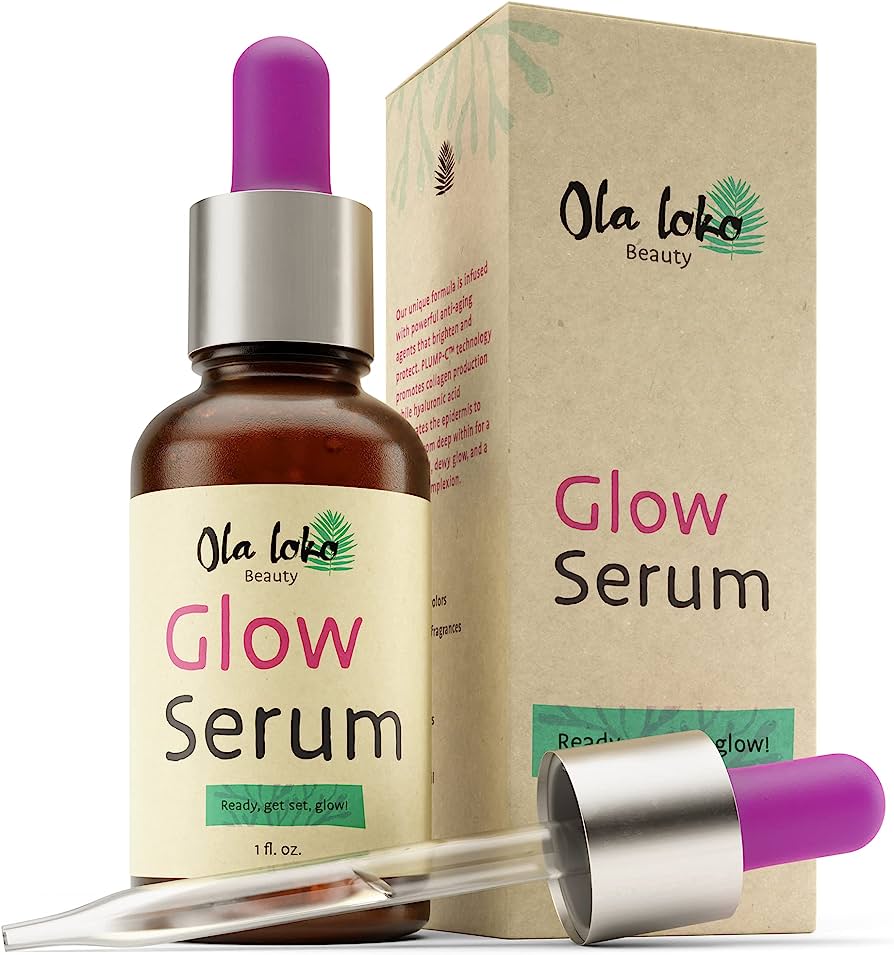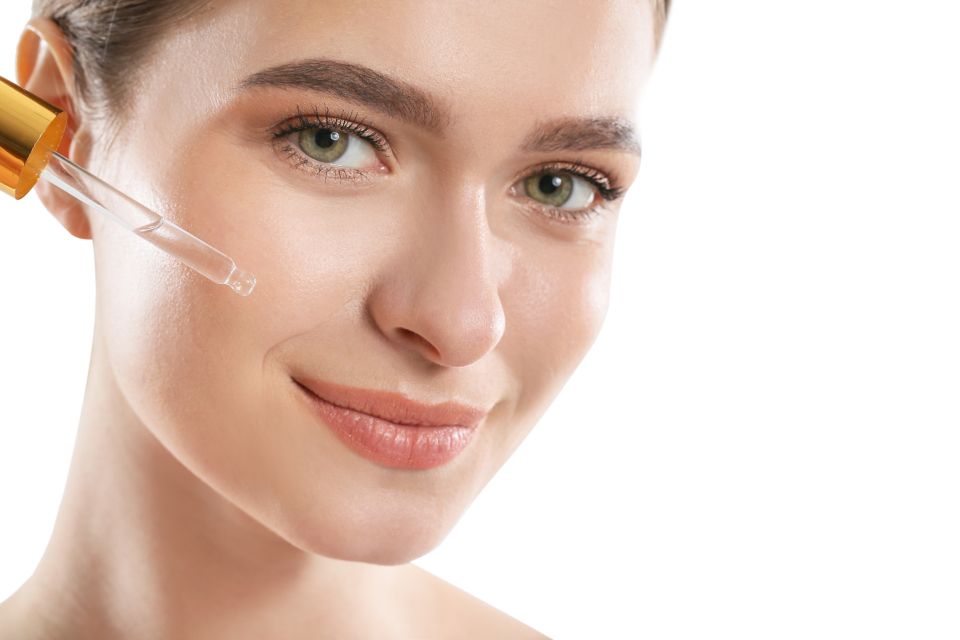Understanding Facial Serums: Unlocking the Secrets to Radiant Skin
Before we explore the frequency of serum use, let’s delve deeper into the world of facial serums. These powerful skincare products hold the key to unlocking radiant and healthy skin. Serums are lightweight formulations that contain high concentrations of active ingredients. They are designed to penetrate deeply into the skin, targeting specific concerns and providing noticeable results.
When it comes to serums, it’s important to choose one that aligns with your skin type and addresses your specific needs. Hydrating serums are perfect for dry or dehydrated skin, as they deliver intense moisture and help restore the skin’s natural barrier. Anti-aging serums, on the other hand, often contain ingredients like retinol or peptides that work to reduce fine lines, wrinkles, and other signs of aging.
Does Serum Make Your Face Glow?
One of the primary reasons people turn to serums is their ability to make the face glow. Glow serums, as the name implies, are specifically formulated to enhance the radiance and luminosity of your skin. These serums contain potent ingredients that work together to give your complexion a healthy and vibrant glow.
Glow serums often incorporate key ingredients such as vitamin C, kojic acid, licorice extract, and other brightening agents. These ingredients help to even out skin tone, reduce the appearance of dark spots, and combat dullness. By addressing these issues, glow serums can effectively enhance the natural radiance of your face.
When consistently using a glow serum as part of your skincare routine, you can expect to see gradual improvements in your complexion. Over time, your skin may appear more vibrant, youthful, and illuminated, exuding a healthy and natural glow.
It’s important to note that the degree of glow may vary depending on individual factors such as skin type, overall skin health, and the specific formulation of the serum. Additionally, the results may take time to manifest, as the brightening effects of the serum may require consistent use and patience.
Vitamin C can help fade dark spots, even out skin tone, and boost overall radiance. Other ingredients like kojic acid and licorice extract can also contribute to a more vibrant complexion.
Should You Use Serum Every Day? Decoding the Frequency
Now that we understand the power of serums, let’s address the burning question: Should you use serum every day? The answer varies depending on individual factors such as skin type, the specific serum being used, and the desired results.
| Key Takeaways: Is it advisable to use serum on a daily basis? |
|---|
| A. The frequency of serum use depends on individual factors like skin type, specific serum, and desired results. |
| B. Incorporating a serum into daily skincare can bring significant benefits, nourishing and improving the skin over time. |
| C. Choose a serum that suits your skin type and concerns; for sensitive skin, start with less frequent use and gradually increase. |
| D. Everyone’s skin is unique, so observe how your skin responds to the serum; reduce frequency or try a different serum if irritation occurs. Consult a dermatologist for personalized recommendations. |
For most individuals, incorporating a serum into their daily skincare routine can yield significant benefits. Daily use allows for a consistent supply of active ingredients to nourish and improve the skin over time.
However, it’s crucial to choose a serum that suits your skin type and concerns. If you have sensitive skin, start by using the serum every other day and gradually increase the frequency as your skin adjusts.
Keep in mind that everyone’s skin is unique, and what works for one person may not work for another. Pay close attention to how your skin responds to the serum.
If you notice any signs of irritation or breakouts, consider reducing the frequency of use or trying a different serum altogether. Consulting with a dermatologist can provide valuable insights and recommendations tailored to your skin’s needs.
Can Serum Cause Acne? Debunking the Myth
One common concern when it comes to serums is whether they can cause acne. The short answer is that serums themselves do not typically cause acne. However, certain ingredients or formulations may not be suitable for acne-prone skin, leading to breakouts or irritation.
To avoid potential acne triggers, it’s essential to read product labels carefully. Look for serums that are non-comedogenic or specifically formulated for acne-prone skin. These serums are less likely to clog pores and contribute to breakouts. Ingredients like salicylic acid or niacinamide can be beneficial for acne-prone skin, as they help regulate oil production and reduce inflammation.
It’s worth noting that individual reactions to skincare products can vary. What works for one person may not work for another. If you have acne-prone skin, it’s advisable to patch test new serums on a small area of skin before incorporating them into your routine. This can help you identify any potential adverse reactions and make informed decisions about the products you use.
When to Use Glow Serums: Unveiling Your Radiant Potential
Now that we’ve covered the basics of serums and addressed concerns about acne, let’s focus on glow serums and when to use them. Glow serums are a fantastic addition to your skincare routine
if you want to achieve a radiant and luminous complexion. These serums work wonders by brightening the skin, reducing dullness, and improving overall radiance.
To maximize the effectiveness of glow serums, it’s important to apply them at the right time in your skincare routine. After cleansing and toning your skin, take a few drops of the serum and gently massage it into your face and neck.
This allows the active ingredients to penetrate deeply and deliver their brightening effects. Follow up with a moisturizer to seal in the serum and provide additional hydration.
While using a glow serum in the morning can give your skin a radiant start to the day, using it at night can also be beneficial. Overnight, the serum can work its magic, helping to repair and rejuvenate your skin while you sleep. Ultimately, the choice of when to use a glow serum depends on your personal preference and skincare routine.
What Is Glow Serum? Illuminating the Path to Luminosity
To wrap up our exploration of serums, let’s shed some light on what exactly glow serums are. Glow serums, as their name suggests, are skincare products specifically formulated to enhance your skin’s glow and radiance. They are often infused with ingredients known for their brightening properties, such as vitamin C, kojic acid, licorice extract, and alpha hydroxy acids (AHAs).
Glow serums work by reducing the appearance of dark spots, uneven skin tone, and dullness. They help to unveil a more luminous complexion, making your skin appear healthier and more vibrant. By addressing pigmentation issues and boosting overall radiance, glow serums can give you that coveted lit-from-within glow.
When selecting a glow serum, it’s crucial to consider your skin type and specific concerns. Look for serums that contain stable forms of vitamin C, as this potent antioxidant can effectively brighten the skin. Additionally, consider serums with other complementary ingredients that target your specific concerns, such as hyperpigmentation or dullness.
A Radiant Conclusion: Embrace the Power of Serums for Glowing Skin
In conclusion, incorporating a serum into your daily skincare routine can be a game-changer for your skin’s health and appearance. By choosing the right serum and using it consistently, you can experience remarkable improvements over time. Remember to select serums that align with your skin type and concerns, paying attention to the ingredients and their potential impact on acne-prone skin.
Whether you opt for hydrating serums, anti-aging serums, or glow serums, each type has its unique benefits. While serums themselves do not cause acne, it’s important to be mindful of the ingredients and choose non-comedogenic options if you’re prone to breakouts. Glow serums can be used in the morning or evening to reveal a radiant complexion, enhancing your natural beauty.
Now that you’re armed with knowledge about serums and their potential, it’s time to embark on your skincare journey. Consult with a dermatologist to determine the best serum for your skin’s needs and discover the transformative effects of these potent skincare elixirs. Embrace the power of serums and unlock the radiant skin you deserve.

